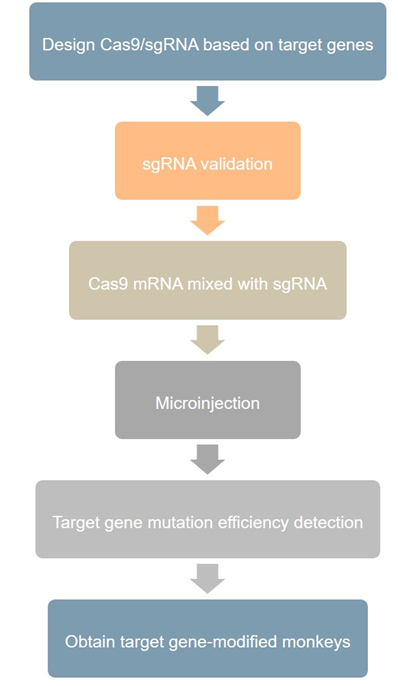With the increase of population and the deterioration of the environment, Humans are facing the infestation of some major and difficult diseases (e.g., Parkinson's, Alzheimer's, diabetes, liver disease, etc.), and the establishment of suitable animal models can provide theoretical insight into the pathogenic mechanisms and practical discovery of effective ways to cure diseases (including drugs, etc.).
Laboratory animals are lifelong companions for human disease research and have developed around the needs of medical production and medical research based on their own physiological and pathological characteristics related to the characteristics and needs of the species.
 Figure 1. A baby monkey on a tree branch.
Figure 1. A baby monkey on a tree branch.
Because of their evolutionary, genetic, physiological, and biochemical proximity to humans, primates, such as monkeys, have become important laboratory animals for human physiological and pathological research, and are the most ideal and sometimes the only laboratory animals for studying human diseases, development, and preclinical treatment, especially in human neuropsychiatric diseases, metabolic diseases and drug effectiveness verification.
With the advancement of cellular molecular biology, more and more studies are needed to explore the important role of gene expression and regulation in the life activities of the organism from a genetic perspective. Since primate models obtained by genetic modification are of great importance for exploring disease pathogenesis and treatment, Lifeasible has been working to construct ideal primate models.
CRISPR/Cas9 is considered a powerful tool for genetic modification of eukaryotic genomes due to its ease of use, high efficiency, high specificity, and ability to manipulate multiple genes simultaneously. Currently, this system has been widely used in mammalian cell lines and several species, including mice.

Lifeasible has established a CRISPR/Cas9-based knockout monkey. We have successfully edited target genes including Nr0b1 (involved in regulating hepatocyte stemness and in regulating sex determination in animals), Ppar-γ (helps regulate metabolism), and Rag1 (associated with healthy immune function), and have successfully obtained target knockout monkeys after injecting f9 mRNA and target gene-specific gRNA mixture into the oocytoplasm of monkey 1-cell stage embryos.
Reference